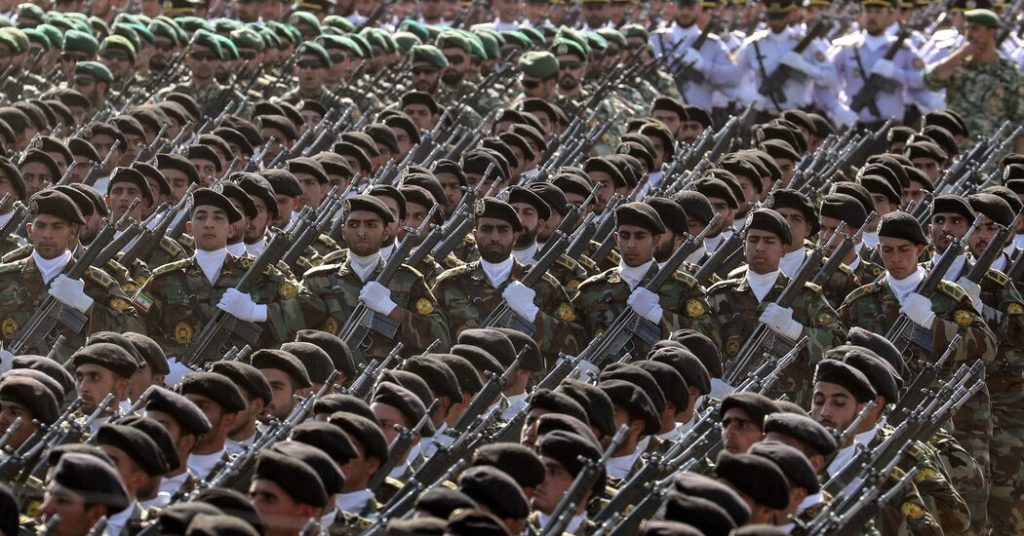The recent direct military confrontation between Iran and Israel has increased interest in Iran’s armed forces. After Israel attacked Iran’s diplomatic compound in Damascus, Iran threatened retaliation, prompting concerns of a wider regional war. The U.S. and Israeli officials assessed that Iran’s response would likely originate from its own territory, noting that President Biden has pledged support for Israel in the event of an Iranian attack. While the U.S. is not expecting to be targeted, there is a possibility that a conflict could escalate to involve American forces.
Iran’s military is one of the largest in the Middle East, with approximately 580,000 active-duty personnel and 200,000 trained reserve personnel divided between the traditional army and the Islamic Revolutionary Guards Corps. The Guards oversee Iran’s border security and manage the Quds Force, which supports proxy militias like Hezbollah in Lebanon and the Houthis in Yemen. Supreme Leader Ayatollah Ali Khamenei has the final say in major decisions within the Iranian armed forces, which could be supported by allied proxy militias in the event of an attack on Iran.
Iran has developed a military strategy focused on deterrence, with an emphasis on advanced missile systems, drones, air defense, cruise missiles, and anti-ship missiles. The country has one of the largest arsenals of ballistic missiles and drones in the Middle East, many of which have the capability to reach any target in the region, including Israel. Iran’s bases and storage facilities are well-fortified and difficult to destroy with airstrikes, making a potential military conflict with Iran a serious undertaking for its adversaries.
International sanctions have limited Iran’s access to high-tech weaponry and military equipment, prompting the country to develop a domestic weapons industry to decrease reliance on foreign powers for defense needs. While Iran’s military is perceived as strong regionally, it still falls short of the power and sophistication of the armed forces of the U.S., Israel, and some European countries. The country’s air force is particularly weak, with outdated aircraft and lack of spare parts hindering its capabilities.
The recent assassinations of Iranian commanders in the Israeli attack are expected to have a short-term impact on Iran’s regional military operations. While the loss of experienced commanders may disrupt operations initially, the chain of command within Iran’s armed forces remains intact. If a conflict were to escalate, these leaders would still be directing strikes on Israel or defending Iranian territory. Despite the vulnerabilities in Iran’s military, potential conflicts with the country are taken seriously due to its complex military apparatus and the support from allied proxy militias.


